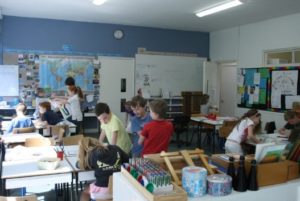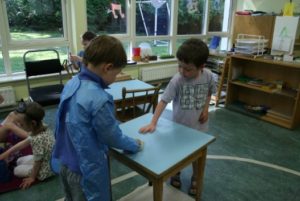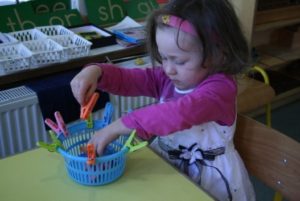Frequently Asked Questions
Our children successfully transition to secondary school well prepared and with enthusiasm and confidence. They move on to a variety of secondary schools. Secondary schools chosen by graduates and their parents in the past few years include: Yes there are Montessori schools in Australia, the U.S., Belgium, Sweden and Holland in particular. Other countries such as France and Spain are planning to start them soon. Interest in the secondary school programme is growing as more parents search for a more inspiring education model for their children. Montessori saw freedom as the single most important factor in allowing children to develop as spontaneous, creative individuals. She saw the role of education as providing environments in which the children could be set free to follow their natural impulses – to become the wonderfully dynamic, natural learners they were designed to be. Montessori education, when done well, is a beautiful blend and perfect balance of freedom and structure. One of the secrets to success in the Montessori classroom is freedom within the limits of very clear ground rules. It is on that foundation of freedom and structure that the child builds discipline. Children transition very well to other schools, both emotionally and academically. We regularly invite graduates back to the school to share their secondary school experience with current families and invariably find their experience positive. By the time a Montessori student reaches 6th class, he or she will have covered the curriculum set by the Department of Education, the same as every other school. Their advantage will be the love of learning, independence and deep understanding of concepts, which is of course the Montessori difference. Regardless of whether they go to a private or public school, Montessori students take with them a positive attitude to learning and to life attracting similar positive feedback. They exhibit high self-esteem, social skills, well developed organisational skills and the ability to work with others. They are inquisitive and know how to ask pertinent questions. Each cycle of the curriculum equips your child with the foundation for the next. Just as the repetition of exercises within each cycle serves to consolidate learning, so the following cycles revisit and expand your child’s knowledge and understanding on a consistent path from the concrete to the abstract. The similar classroom environment, cooperative manner of working and style of guidance offered by the Montessori directress provide a secure framework in which your child can confidently apply the skills and approaches to learning acquired in the previous three years. Consultation between cycle directresses at the time of transition ensures that your child’s particular needs are well understood at each stage. Within each 3-year cycle, a sequenced body of information and skills is presented. Much depends on the repetition, at successive stages of development, of similar exercises, so that understanding is fully assimilated through the senses, feelings and thinking. Failure to complete a 3 year cycle will leave gaps in knowledge and understanding that may be difficult to fill at a later stage. The 3 year cycle ensures completion of the work necessary to the development of the whole child at that particular age. Older children act as role models for the younger, they instruct younger children, reviewing concepts themselves in the process. Patience and confidence are reinforced and practiced. A child may work at a level different from his/her peers without the pressure found in single age peer grouping. Younger children learn to seek help and assistance of classmates with more experience than themselves. They begin to learn to help themselves in a natural way, as they would in most communities. Montessori is designed to help all children reach their fullest potential at their own unique pace. A classroom whose children have varying abilities is a community in which everyone learns from one another and everyone contributes. Moreover, multi-age grouping allows each child to find his or her own pace without feeling “ahead” or “behind” in relation to peers. Montessori education is an approach based on “following the needs of the child”, on recognising and responding to the developmental needs of the child so that each individual reaches their full potential. Therefore it is suitable for all children.

 Yes, they attend every day, initially from 9.00-12.30 in Pre-primary. As they mature, their day extends and by Primary they are attending for five full school days. By attending every day, they fully participate in all facets of school life and they become part of their class community. They are also then able to achieve continuity in their work and with the class group.
Yes, they attend every day, initially from 9.00-12.30 in Pre-primary. As they mature, their day extends and by Primary they are attending for five full school days. By attending every day, they fully participate in all facets of school life and they become part of their class community. They are also then able to achieve continuity in their work and with the class group. Pre-primary children start on or near their third birthday and join the 3-6 Junior Class. The children then naturally transition to Primary (6 – 9) at around the age of 6 and to Senior (9 -12) when approaching 9 years of age.
Pre-primary children start on or near their third birthday and join the 3-6 Junior Class. The children then naturally transition to Primary (6 – 9) at around the age of 6 and to Senior (9 -12) when approaching 9 years of age.


